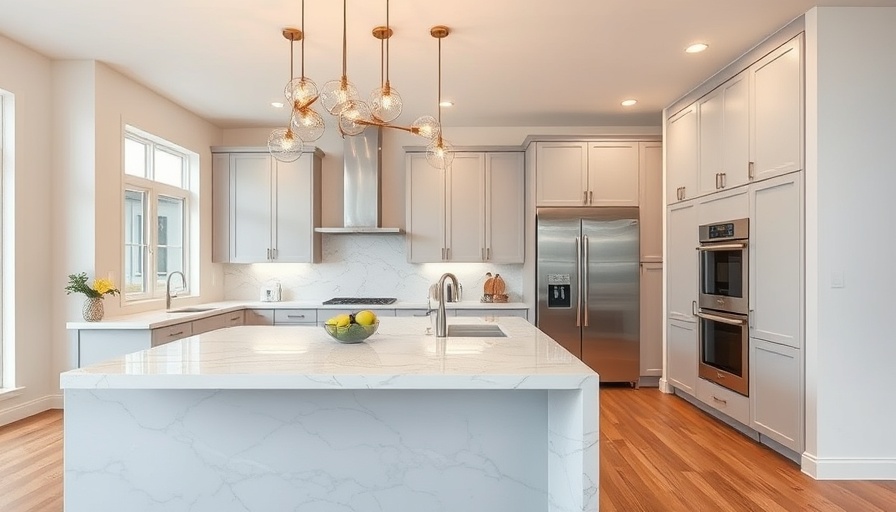
Elevate Your Kitchen Aesthetic with Thoughtful Lighting
As you explore the world of kitchen lighting, it becomes apparent that it transcends mere functionality; instead, it shapes the atmosphere of your culinary haven. From modern lofts in bustling New York City to the charming kitchens of Denver, carefully selected lighting can dramatically enhance both the style and feel of your space. This article delves into an array of creative kitchen lighting ideas designed not only to brighten your home but also to elevate your cooking experience.
Creating the Perfect Ambiance
The art of setting the tone begins with understanding the interplay of ambient, task, and accent lighting. According to Erica Lee, founder of Studio Lee, layering these three types ensures that your kitchen not only functions optimally but feels inviting. Softening harsh surfaces with warmer 3000K bulbs creates a cozier environment, making your kitchen a comfortable gathering spot. Mixing finishes—natural brass with matte black—adds a curated feel to your lighting setup, steering clear of generic designs.
Functional Lighting Solutions for Every Need
Tasks in the kitchen range from prepping meals to entertaining friends. Therefore, lighting should mirror these diverse activities. Katie Brown, lead architectural designer at Hummingbird Home Renovation, recommends starting with recessed lighting for overall illumination. This low-profile option keeps ceilings clean and introduces a subtle elegance. Follow up with task lighting, specifically under-cabinet designs, to illuminate countertops. Finally, finish with decorative elements like pendant lights, which can serve as the jewelry of your kitchen. This thoughtful layering not only facilitates functionality but also injects character and personality into your space.
The Importance of Natural Light
Understanding how natural light interacts with your kitchen is vital for achieving the ideal ambiance. Nichol Kuperus of BaseCamp Residential Design highlights that orientation plays a significant role. For instance, kitchens oriented toward the east capitalize on morning sun, enhancing the cooking experience and creating a warm, inviting atmosphere. Planning for electrical fixtures comes after ensuring natural light is maximized, allowing for a seamless blend of illumination.
Opportunities in Kitchen Renovation
Considering kitchen lighting during renovations not only beautifies the space but also increases the home's value, which is crucial for those looking to sell. A well-lit kitchen can intrigue potential buyers, creating a welcoming impression. For real estate professionals, understanding these lighting dynamics can be pivotal when advising clients on home improvements that yield the highest return on investment.
Incorporating Technology into Lighting Design
Modern advancements have presented a myriad of smart lighting options that allow homeowners to control the brightness and hue of their kitchen lights via apps or voice commands. Incorporating such technology can make cooking more enjoyable and align with energy-efficient practices, ultimately benefiting your wallet as well as the environment.
Final Tips for Kitchen Lighting
Here are several key takeaways to remember when planning your kitchen lighting:
- Layer different lighting sources to achieve functionality and aesthetics.
- Utilize warm bulbs to create an inviting atmosphere.
- Consider the natural light when planning electrical layouts.
- Don’t shy from mixing finishes for a curated look.
- Invest in smart lighting solutions for added convenience.
By paying careful attention to these elements, homeowners can significantly enhance their kitchen's ambiance, making it a more enjoyable and practical space.
Your Next Steps
As you embark on your kitchen lighting project, consider browsing various real estate websites such as Redfin or Zillow to gain inspiration and ideas specific to your local market. Whether you're renovating or staging your home for sale, explore your options to find the perfect balance of style and functionality in your kitchen lighting.
 Add Row
Add Row  Add
Add 




Write A Comment